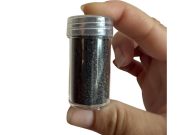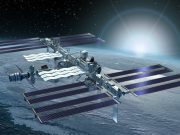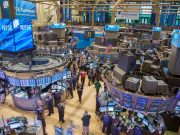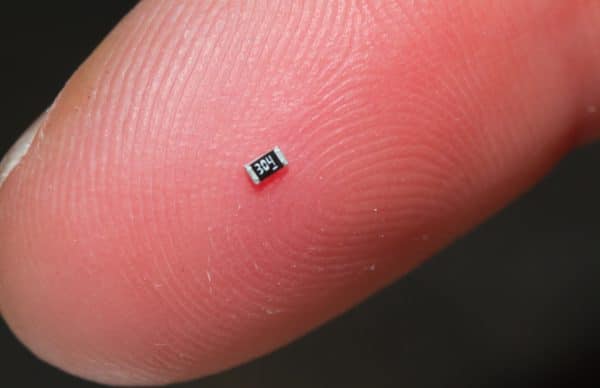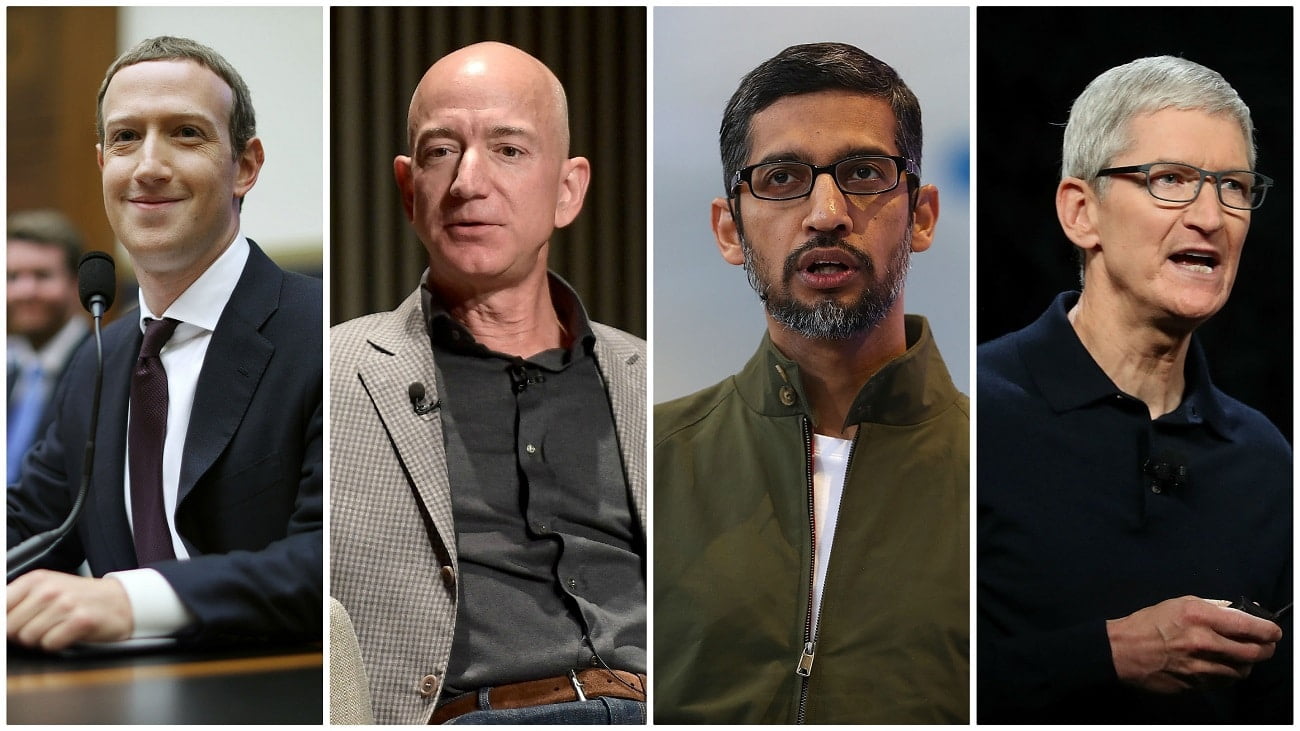Space is cold, but space investing is heating up. Space-linked stocks are rocketing higher.
There is great effort from not only high-profile billionaires and startups to develop new space technologies, but also from Governments and Aerospace & Defense giants from around the world with tremendous R&D power.
The Space Economy is a multi-billion dollar industry today, but many are expecting to surpass $1 trillion in the coming decades. Which is bringing new opportunities for investors to potentially capture this growing segment of the global economy. The Commerce Department is already throwing its support behind the American space industry with ambitious goals for regulatory reform and promotional efforts.
Now the space industry looks ripe for its own surge in investor interest—in part because of Tesla (TSLA) founder Elon Musk, who also runs spacecraft and rocket manufacturer SpaceX. The company has pioneered the use of reusable rockets, driving down the cost of reaching low-earth orbit. Those falling costs are opening up opportunities for companies looking at new satellite-based services and other business models. SpaceX itself is planning to eventually offer high-speed, space-based internet access across the globe.
SpaceX is private, so you won’t be able to buy shares of that just yet, but you can buy several others. Our research team put together this hotlist of space stocks for investors who wish to potentially capture this growing segment of the global economy.
Founded in 2017, Virgin Galactic Holdings Inc. (SPCE) is an integrated aerospace company that develops human spaceflight for the private market and research community in the U.S.. As the world’s first commercial space line and vertically integrated aerospace company, SPCE’s spaceship operations include commercial human spaceflight and ferrying commercial researchers and development payloads into space. The company is developing a spaceflight system that is designed to offer passengers a unique, multi-day, transformative experience.
While SPCE is not yet profitable, it has many projects in its pipeline. Once SPCE’s commercial business commences, the company is expected to generate impressive returns. This positive outlook and potential upside based on several factors have helped the stock earn a consensus “Buy” rating from the analysts offering recommendations.
The company’s cash position has remained strong, with a cash and cash-equivalents balance of $742 million as of September 30, 2020. Amid the COVID-19 pandemic, the company has experienced delays in its business and operations, which have negatively impacted scheduling and cost efficiency. However, SPCE is expected to prepare for commercial launch and reopen ticket sales following Richard Branson’s planned flight this year.
SPCE announced that its test flight on December 12, 2020 failed to reach space as planned because the rocket motor did not fire due to a technical fault. However, the spacecraft returned to Spaceport America, New Mexico and landed safely. On October 27, 2020, the company announced the appointment of two new pilots — Jameel Janjua and Patrick Moran — to its pilot corps, bringing the total number of pilots to eight.
SPCE has the potential to soar in the upcoming months despite gaining 73.8% over the past year based on its continued business growth, and favorable outlook. The stock is expected to gain even more in the near term because it is expected to be a major holding of Cathie Wood’s about-to-be launched ETF, which will be focused on the space exploration industry.
A consensus revenue estimate of $27.61 million for 2021 represents a 3186.9% increase year-over-year. SPCE’s EPS is expected to grow 23.3% for the quarter ending March 31, 2020, and 44% in 2021.
Momentus (MNTS) is a pure-play space infrastructure company that is expected to go public via a SPAC, Stable Road Acquisition (SRAC, SRACU, SRACW), and it will trade under the ticker MNTS. Despite an already rich valuation near $2 billion at the deemed value of $10 per share, it will have a significantly lower market cap than Virgin Galactic (SPCE) at $7 billion. Given the frothy nature of SPACs and the fact that Momentus will be an exciting one-of-a-kind public space company, I expect there to be near to intermediate term upside. However, the longer term outlook is a complete gamble.
Unlike Virgin Galactic, which is geared towards being a luxury travel provider, Momentus aspires to be a space infrastructure company for commercial endeavors. This Santa Clara, California-based company states the following as their goal for 2025:
“We aim to be able to provide a full range of infrastructure services in microgravity and deep vacuum, which will open the door to infinite manufacturing possibilities. Impossibly large next-generation structures will continue to pave new paths for even greater human development in space.”
For 2035, they talk about asteroid and moon mining! Though before we get carried away, let’s focus on the here and now.
Momentus has developed what they call a space transfer vehicle. In short, it aims to offer a ride sharing service for satellites. You see, most satellites need highly precise orbits. Booking your own launch on say, a SpaceX Falcon 9 rocket, to accomplish that precise orbit is mighty expensive. What Momentus does is allow multiple satellites to hitch a ride on their Vigoride vehicle. In turn, that vehicle will take each satellite to its needed orbit.
Momentus already has customers lined up for 2021. According to CNBC, they had inked $40 million of contracts as of July. This includes NASA, Lockheed Martin (LMT), and a handful of space startups such as Relativity, Pixxel, NuSpace, and others. Keep in mind these entail “non-binding options with deposits prepaid.” In other words, don’t bank on them until they happen.
Space isn’t Lockheed Martin’s (LMT) biggest business. At $11.2 billion in revenue last year, it actually came in third out of the defense company’s four main business units. Space isn’t Lockheed Martin’s most profitable business, either. With just $1.2 billion in operating profit, space contributed least to the bottom line of any LockMart business unit in 2019.
But come next year, space could be the reason that Lockheed Martin both books more revenue and earns more profit than ever before
How will that happen? Late last year, Lockheed Martin announced plans to acquire and merge into its own space operations rival rocket company Aerojet Rocketdyne (AJRD) in a $5 billion all-cash transaction. Assuming shareholders approve and regulators allow it, sometime in the second half of 2021 Lockheed Martin will either (a) pay Aerojet shareholders $56 for each share they currently hold, or (b) permit Aerojet to pay its shareholders a $5 special dividend in March, then pay the remaining $51 per share in cash to acquire the company later in the year.
It all may be part of a strategic plan to benefit longterm from NASA’s gigantic Space Launch System (SLS). Although Lockheed is the prime contractor building the Orion space capsule that sits atop SLS, Lockheed doesn’t currently play a major role in construction of the rocket itself. Buying Aerojet — which is contracted to build the core-stage engines on SLS, and the rocket’s upper-stage engines as well — ensures that “Lockheed will make hundreds of millions of dollars from every launch,” whether SLS carries an Orion or not.
In the White House, no one knows whether the incoming Biden Administration will view SLS favorably. And complicating matters further, at NASA itself, one of the rocket’s most vocal defenders, NASA administrator Jim Bridenstine, announced in November that he plans to leave the agency in the near future.
Lockheed Martin may want Aerojet to profit from future SLS launches, but that will only happen if SLS does, in fact, eventually launch. At last report, NASA was still planning to attempt a first launch in November 2021. You can bet Lockheed Martin has its fingers crossed.
Where to invest $1,000 right now...
Before you consider buying Virgin Galactic, you'll want to see this.
Investing legend, Keith Kohl just revealed his #1 stock for 2022...
And it's not Virgin Galactic.
Jeff Bezos, Peter Thiel, and the Rockefellers are betting a colossal nine figures on this tiny company that trades publicly for $5.
Keith say’s he thinks investors will be able to turn a small $50 stake into $150,000.
Find that to be extraordinary?
Click here to watch his presentation, and decide for yourself...
But you have to act now, because a catalyst coming in a few weeks is set to take this company mainstream... And by then, it could be too late.
Click here to find out the name and ticker of Keith's #1 pick...

